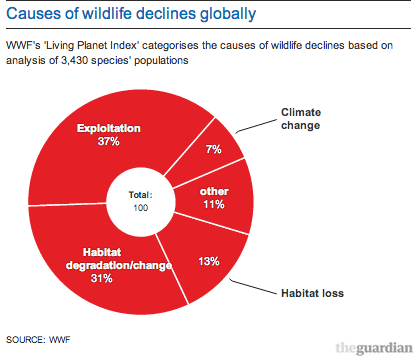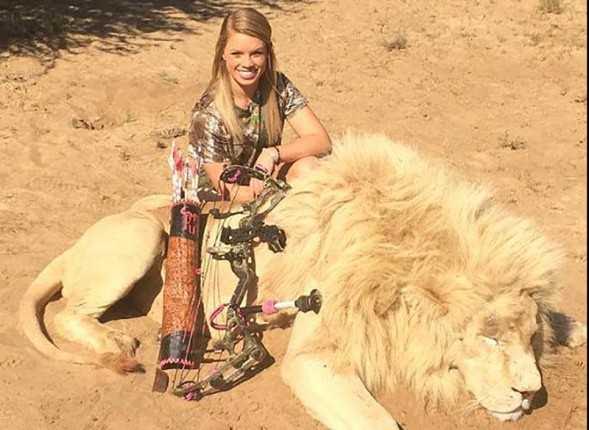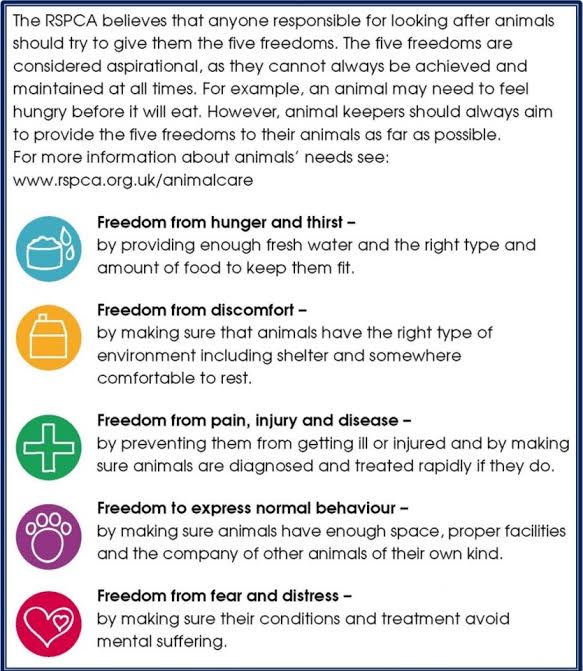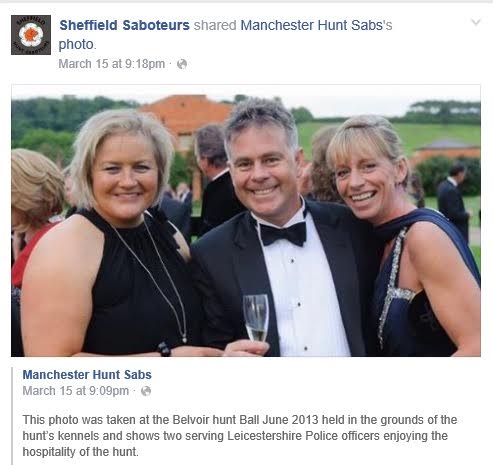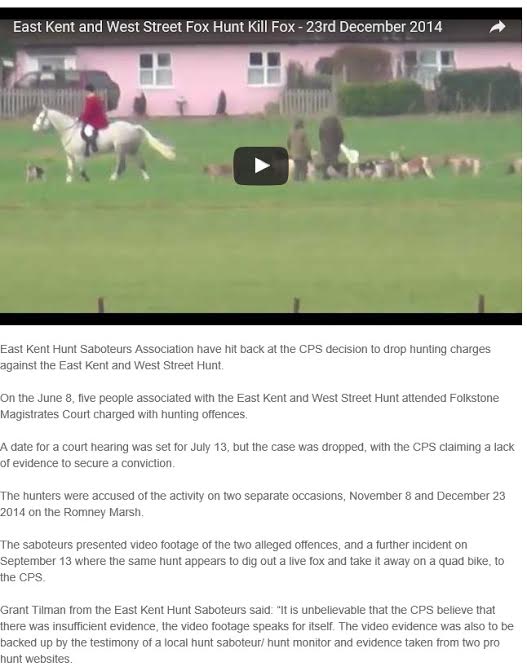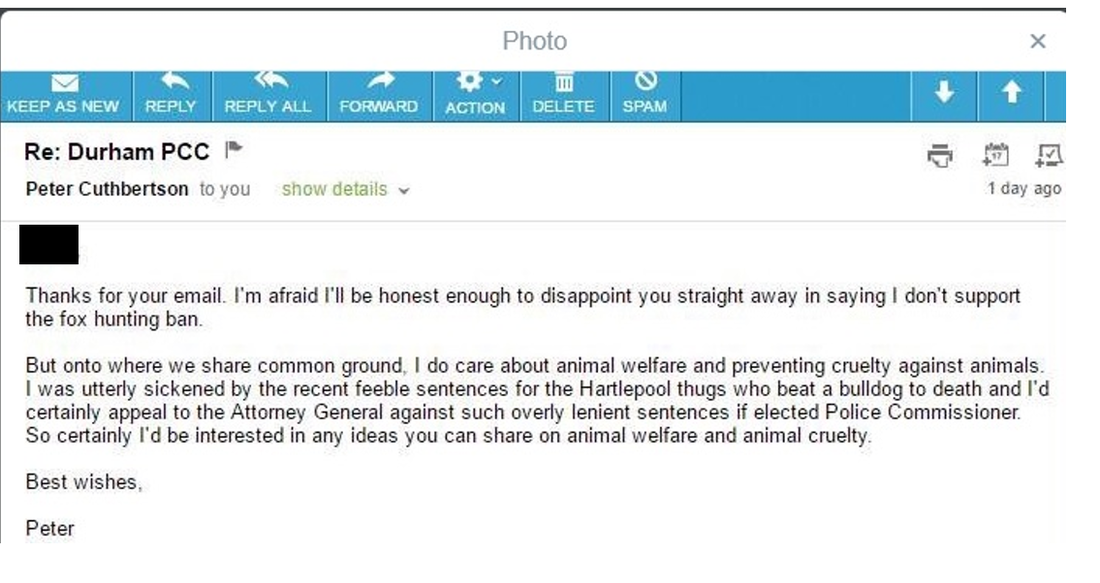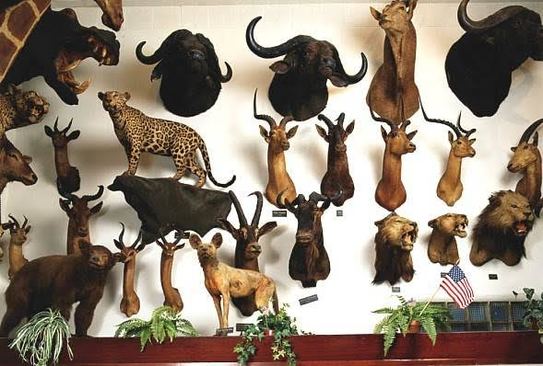 A recent report claims that in the last forty years the number of wild animals on planet earth has halved. It seems humans are spreading like viruses across the globe slaughtering everything in their path. Whole populations of non-humans have been wiped out and their habitats destroyed for food, fun and to make way for money making enterprise. The eyes of the world have recently turned on trophy hunting after the cruel and unnecessary death of Cecil the lion killed by an American dentist for sport. Millions of decent people are outraged at the senseless slaughter of African wildlife yet there are still those who still attempt to defend this vile practice by claiming it’s an act of conservation. Even members of the British royal family go trophy hunting. Those who could set such a great example prefer instead to just pretend to care about wildlife, whilst indulging themselves in their bloodthirsty hobbies of shooting and hunting. Claims that canned hunting helps the local poor by paying millions of dollars into the economy is rubbish. Most of the money paid by the super-rich to indulge a bloodlust goes straight into the pockets of the middlemen, large companies and corrupt government officials. A dead lion is worth much more than a live one to many officials on the take. Two hundred million dollars a year and Africa has nothing to show for it apart from dwindling animal numbers and much animal suffering. It’s a frightening thought that greed and a desire to shoot at living targets may see some of earth’s iconic species disappear for ever in our own lifetime. Another pathetic argument put about by hunters the world over, no matter what the species they want to kill, is that hunting helps wild populations. Unfortunately, this argument doesn’t hold water. No one wants a mangy looking old lion head on his wall. Hunters take animals in their prime for their trophies, leaving the weak or the sick to take care of the pride. The gene pool of an alpha animal is destroyed and the pride is left open to attack by wandering males who may kill a whole generation of cubs. Similarly, the oldest and most experienced elephants are killed because they have the biggest tusks, leaving the younger less experienced to look after the herd with little protection or guidance. Governments collude by setting up ‘legal’ quotas and the hunters try to invoke moral arguments because they say it’s within the law. But not everything that is legal is wholesome, and any law, whether good or bad, depends on the humanity and the moral compass of the law makers at the time. Estimates of the lion population is the wild are between 20 to 35 thousand animals, not counting poaching and other deaths, hunters are legally allowed to kill around 600 hundred a year. That is an unsustainable annual population loss of approximately 3 percent. People who simply like killing will always find an alternative excuse. Tell them the wild populations are in danger of vanishing forever and they come up with canned hunting. A sport even more disgusting than killing in the wild. Bred in captivity, hand reared to trust humans, exploited by tourists as fluffy cubs, then sold on to hunting concerns when then are fully grown, to be shot like sitting ducks on a pond. Some argue that breeding lions in this way can be used to repopulate the wild, but these animals are ill equipped to deal with life in the bush. Most are inbred with a poor gene pool and releasing animals this way into established territories can lead to fighting and unstable prides. Local people with livestock and crops to protect often kill those animals who aren’t afraid of man and who will wander into human areas in search of food or simply because they are used to being around people. Change comes slowly, and there are always those who will exploit all living things to make money. Fortunately, some African countries are coming to realise that shooting big game with a camera may turn out to be more lucrative. In Botswana, the government banned almost all trophy hunting at the beginning of 2014. Compared to the 1.8 percent of revenue from killing animals, Africa is coming to realise that 98 percent of those who come to visit, come to see the wildlife. Eco tourism provides jobs for guides and spin off industries like holiday accommodation etc.. Those who come with cameras stay for longer and many come back with friends. In the first year of Botswana’s ban, eco-tourism brought in $344 million dollars. Change is slow, but it is happening. Let us hope that the day of the backward hunter, who likes to use living flesh as target practice, is coming to an end before we lose any more of our world’s precious animals. [For now people such as this "Africa Safari Hunting Consultants" still make money out of big game hunting] Related reading: Canned Hunting, Cowards Killing Captives Lion trophy hunting Can the Can
1 Comment
 Op-ed: Members of the Environment, Food and Rural Affairs committee (EFRA) are currently in discussion about Britain’s animal welfare laws and whether they are still fit for purpose in 2016. The inquiry will focus on the effectiveness of the Animal Welfare Act 2006 in protecting domestic pets, such as cats, dogs and horses, from cruelty. This is in part response to the growing concern about Internet trade in animals and the easy way unscrupulous people can buy and sell animals for dog fighting, baiting and other nefarious activities. Included in EFRA’s review of animal laws is a debate about the RSPCA and whether the charity should be allowed to continue in its present form of investigator and prosecutor. The RSPCA has been saving animals both domestic and wild for 200 years. It is irreplaceable and the work could not be picked up by the police and the CPS. The Charity has no statutory powers above and beyond any citizen in the UK. It is a long established legal right of every one under English law to bring a private prosecution, and with a 92.4 per cent success rate, which is much higher than the CPS, the RSPCA has saved the taxpayer £43 million a year, and in 2015, 796 animal abusers out of 1,781 were convicted and punished. So all in all the RSPCA is fulfilling its remit as a charity by preventing cruelty and helping bring animal abusers to court in the interests of the public. It should also be remembered that the RSPCA has no powers of arrest, and in the case of domestic animal abuse, all arrests and removal of animals are carried out by the police, not the RSPCA. Similarly, in Court it is the lawyers and the judges who decide if a person is guilty or innocent, not the RSPCA. No reasonable person would argue that RSPCA private prosecutions are anything but about stopping animal abusers and saving animals from suffering but it appears the Charity is a victim of its own success. Animal experts and others in authority have been invited to submit evidence for the EFRA review, and the National Police Chiefs Council (NPCC) has reportedly also submitted evidence to EFRA stating that the RSPCA should step back and leave the roles of investigator and prosecutor exclusively to the police and the CPS. The NPCC is concerned that the RSPCA has no statutory powers to assume the default role of investigator and prosecutor and it draws attention to the fact that the RSPCA has been shouldering this responsibility outside of a statutory framework for some considerable time. The NPCC goes on to say that groups such as the Countryside Alliance (CA) have long accused the RSPCA of pursuing politically motivated prosecutions against hunters and it is past time the Charity left the state to prosecute criminals as it does in every other area of the law. Tim Bonner, CA CEO said, “The time has come for the society to accept that none of its prosecution decisions will be seen as independent whilst it attempts to carry out the multiple roles of political campaigning and criminal prosecutor, whilst running an intensive fundraising operation," Tiverton and Honiton MP and Efra committee chairman Neil Parish said the role of the RSPCA is, "certainly something MPs will be looking at and taking evidence on. We are a nation of animal lovers and that's why the RSPCA is one of the largest and most well-funded charities in our country. They've had a tough period and I think that prosecutions have had a lot to do with that.” Rebecca Pow, MP for Taunton Dene, who is also a member of EFRA, said animal welfare is one of the issues constituents contact her about the most and whilst this Government has made huge strides in this area, including taking action on protecting wildlife, there is still much work left to do. Ms Pow hopes the EFRA inquiries can highlight the areas where improvements can be made. And so the stitch up of the RSPCA begins in the guise of updating the UK’s animal welfare laws. If we take a closer look at the EFRA committee, half of those on board are pro hunt and pro repeal of the hunting Act. Neil Parrish, EFRA Chair, is rabidly pro hunt and pro badger cull. Rebecca Pow, MP is also in favour of making legal again the ripping up of Britain’s wildlife for entertainment. Neither Mr Bonner nor the NPCC have explained in what way prosecuting animal abusers is political. It’s not and never has been political to stop people being cruel. Neil Parrish claims the RSPCA prosecutions have made it tough for the Charity. He’s right, but not because of any political motivation. The Countryside Alliance has long had reason to hate the RSPCA since the Charity successfully prosecuted the Heythrop hunt for illegally killing a fox. The unelected, single issue, pro hunting/shooting Countryside Alliance organisation has relentlessly pursued the RSPCA through the pro hunting media with lies and smears and claims that prosecuting hunt abuse of wild animals is because people are against toffs enjoying themselves. There is no moral argument to support hunting, so the next line of attack is to render those against their cruel form of entertainment powerless. What better way to avoid prosecution than to remove the right of the RSPCA to prosecute? To this end, the Countryside Alliance has harassed the RSPCA online and in the national press. The CEO has pestered the Charity Commission, members of Parliament and indeed anyone else who will listen to the relentless carping. This remorseless attack is not in the best interest of animals, it is purely in the interests of the hunting fraternity, who want the RSPCA stripped of its right to investigate and prosecute hunt abuse of wild life. The police aren’t interested in illegal hunting, and indeed many police officers are pro hunt themselves, so with the RSPCA unable to act, its business as usual for hunts up and down the country with little fear of being caught and punished. Many reports of police collusion with hunters and the prevention of the saboteurs monitoring hunts can be found on Facebook. On March 20th this year, the Sheffield saboteurs reported that an inspector based at a Northampton police station, encouraged hunt followers to block the road preventing the sabs from following the hunt for 10 minutes, giving them time to get a head start. It was alleged that the same officer also witnessed an assault on the sabs but then claimed he didn’t. When challenged he said " I am not bothered about assaults. But I am bothered about aggravated trespass " In answer to the question, are you going to do anything about illegal hunting? he said "no, but I will be making arrests for aggravated trespass “. The Accidental Activist wrote in his blog in March that a senior police inspector was present at an illegal cub hunt in 2015, and the Wild Life Crime Officer for Leicestershire police was forced to stand down from her role when it was discovered that she is from a hunting family and she is currently involved with the Duke of Rutland’s Belvoir hunt. (The same hunt that is under investigation after allegations of grievous bodily harm to two monitors from the League Against Cruel Sports.) It has been alleged that on other occasions Leicestershire police regularly harass hunt sabs while ignoring assaults, dangerous driving and reckless & outrageous behavior by local hunt supporters. Leicestershire police are not alone in this. In 2006 Avon and Somerset and Devon and Cornwall police were presented with evidence against the Exmoor Foxhounds but they decided not to pass the file on to the Crown Prosecution Service. The police prevaricated until such time as the League was forced to take out its own private prosecution against the hunt. Elections for Police and Crime Commissioners will be held in the 41 police force areas of England and Wales on 5 May 2016. One of the candidates for Durham is Tory Peter Cuthbertson who has declared in an email to a constituent that although he is very much against animal abuse and supports good animal welfare he does not support the fox hunting ban. Lord Ashcroft, in his unofficial biography of David Cameron, claimed that whilst our Prime Minister was an MP, he wrote to the CPS to get a friend off a hunting charge. The CPS subsequently dropped the case and a FOI request about the issue was denied on the grounds it was not in the public interest. David Cameron is himself a hunter, and repeal of the hunting Act is in the Tory manifesto. As recently as June 2015 East Kent Hunt Saboteurs Association presented the CPS with evidence of illegal hunting but the case was dropped before the Court hearing on July 13th. The hunters were accused of illegal hunting on two separate occasions, November 8 and December 23 2014 on the Romney Marsh, and a separate incident when they were alleged to have dug out a live fox. Video evidence was supplied as well as an expert witness statement. Grant Tilman from the East Kent Hunt Saboteurs said: “It is unbelievable that the CPS believe that there was insufficient evidence, the video footage speaks for itself. The video evidence was also to be backed up by the testimony of a local hunt saboteur/ hunt monitor and evidence taken from two pro hunt websites.” In disgust Mr Tilman went on to say, “How often does a prosecution case have video evidence of an offence, someone with twenty two years of hunt experience ready to testify, not to mention two websites implicating many of the accused at the scene of the crime. How much evidence do they need? A signed confession?” So where does all this leave animals if the RSPCA is stripped of its prosecuting rights? And equally worrying, where will it end? Will the League against Cruel Sports be banned too from taking abusers of UK wild animals to Court? People who care about animals are justifiably concerned that with animal cruelty on the rise, and prosecutions left to the police and the CPS, many animals both domestic and wild will not get the protection or the justice they deserve. Many of us feel that the EFRA committee would serve our animals better if instead of persecuting the RSPCA, they remind Britain’s police forces that they have a duty to uphold ALL UK laws, not just those they deem are more important. September 2015 - Open letter to EFRA, Cameron, Hart and Parish Resources: Daily Mirror https://www.facebook.com/sheffieldsaboteurs https://morethanjustbadgers.net/2016/03/ |
Animal mattersCountry lover, amateur naturalist and fox lover fighting to preserve the ban on hunting Archives
September 2016
Categories
All
|
